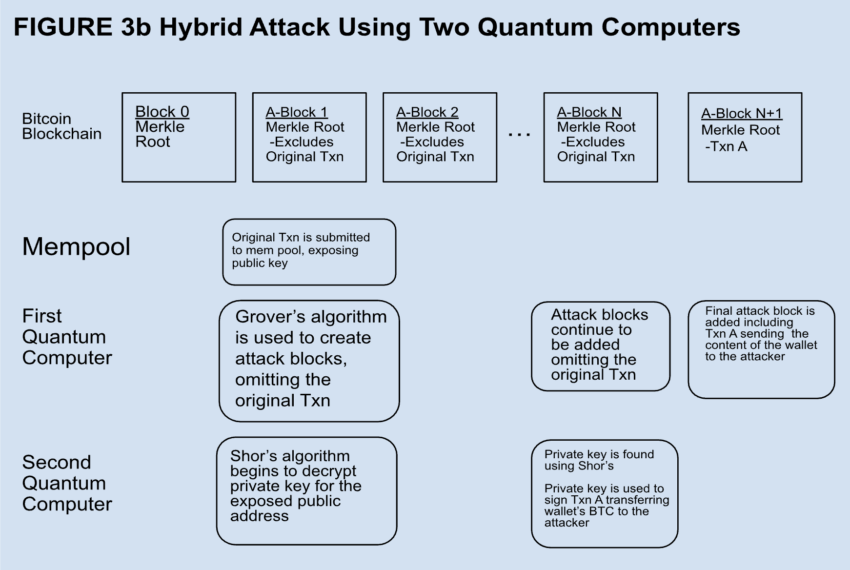Quantum computing is a revolutionary force with the potential to redefine industries, including the cryptocurrency market. For this reason, Bitcoin, the largest crypto by market capitalization at $1.27 trillion, stands at a crossroads.
With its reliance on the Proof-of-Work (POW) consensus protocol and Elliptic Curve Cryptography (ECC) for encryption, Bitcoin faces significant vulnerabilities against quantum computing.
Quantum Computing Threatens Bitcoin
The POW mechanism, integral to Bitcoin’s operation, involves miners solving complex mathematical problems to validate transactions and secure the network. However, quantum computing, with its ability to perform calculations at unprecedented speeds, threatens to disrupt this balance.
Quantum algorithms like Grover’s could theoretically solve these problems much faster than classical computers. Therefore, this technology has the potential to centralize mining power and undermine the decentralized ethos of Bitcoin.
“Bitcoin network hash rate using the most current value against a quantum computing technology, increasing over time at the same rate, as dictated by Moore’s Law, gives an estimated timeframe of approximately 27 years until a single quantum computer will be capable of completely out-mining the rest of the network, and hence be able to take over complete control of it,” Dan A. Bard, Teaching Staff at the University of Kent, wrote.
Furthermore, Bitcoin’s ECC encryption, a staple for securing wallet addresses, is also at risk. Quantum computers could one day use Shor’s algorithm to break ECC, exposing Bitcoin transactions to potential security breaches.
This vulnerability extends particularly to legacy addresses, which include a significant portion of Bitcoin’s founder, Satoshi Nakamoto‘s holdings.
“Once the public key is revealed, Shor’s algorithm adapted for ECDSA could be run on an ideal quantum computer to find the public key in polynomial time. Classically, finding a solution would be super-polynomial, orders of magnitude slower… Polynomial time is potentially feasible, and it is conjectured that, eventually, ECDSA will be breakable by quantum computers,” researchers at Acheron Trading wrote.

Despite these challenges, the immediate threat remains theoretical. Current quantum computing capabilities, as demonstrated by the largest Grover search to date using six qubits, are far from the scale required to disrupt Bitcoin mining or break ECC encryption effectively. However, the potential for quantum advantage, a state where quantum computers outperform their classical counterparts in specific tasks, looms on the horizon.
The Bitcoin community appears unlikely to shift from POW to alternative consensus mechanisms like Proof-of-Stake (POS). Even cryptographer Adam Back stated that PoS cryptocurrencies lack immutability, decentralization, and the verifiable, significant cost of production, highlighting their fundamental differences from Bitcoin.
“Being hard money, immutable, decentralized, and verifiably costly to produce. The tech is structured to make that economically stable, and actually hard to modify. PoS coins have none of those properties. they also have a CEO, and dozens of competitors. There is only one Bitcoin,” Back argued.
This resistance to change reflects the importance of proactive measures to safeguard the network against future quantum threats.
The path forward involves a delicate balance between maintaining Bitcoin’s foundational principles and adapting to technologies like quantum computing. Upgrading encryption methods and exploring quantum-resistant algorithms are critical steps to ensure Bitcoin’s resilience. The transition to quantum-safe cryptography will protect against immediate threats and secure the network against future advancements in quantum computing.
 beincrypto.com
beincrypto.com